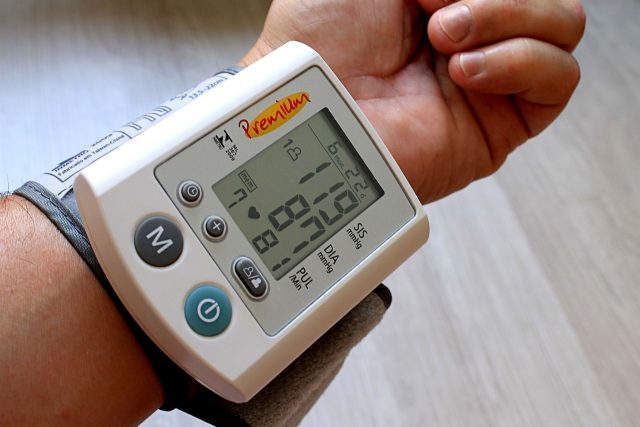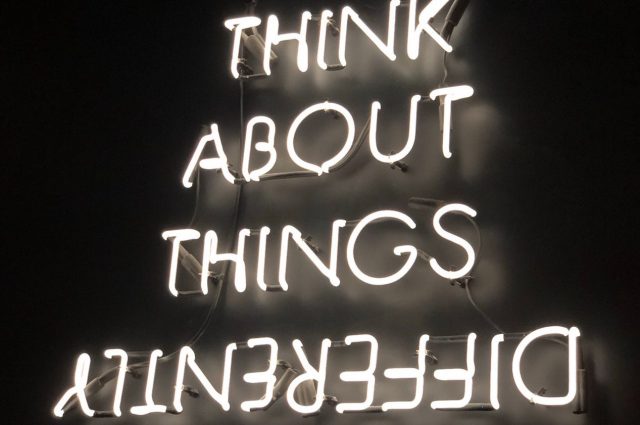Drug usage has risen over the past decade and only seems to be increasing. It seems like we all know, or have known, someone in our lives who has fallen into the addiction of drug usage.
While many people think about the problems, drug addiction brings, not many people think about the long-lasting health effects drugs have on your body.
We scoured the internet looking for the most common reasons people avoid drugs and came up with the following list.
This is a great starter list and summarizes quite a few reasons why it’s a bad idea to abuse drugs.
One thing that generally isn’t spoken about when talking about drugs is the effect drugs have on your blood pressure.
If you’re not familiar with medicine or anatomy, blood pressure is the pressure that your heart pumps blood through your veins. If your blood pressure is too high, your heart has to work extremely hard in order to supply your body with blood.
If your blood pressure is too low, vital organs don’t receive enough blood or oxygen and can be severely damaged.

Drugs can cause serious physical health issues, beyond what might seem obvious.
Drugs affect the body in many different ways. Since there are so many kinds of drugs, it’s impossible to make a blanket statement on how drugs affect blood pressure. We can, however, break down the effects that each drug has on the blood pressure individually.
Some drugs increase blood pressure above normal; this is known as hypertension. Some drugs lower blood pressure below normal; this is known as hypotension.
Both hypertension and hypotension can be severe ailments. If your blood pressure is too high, your risk of heart attack or stroke skyrockets.
If your blood pressure is too low, you risk passing out, suffocating, or permanent brain damage due to lack of oxygen being transported through the bloodstream.
Let’s examine some of the most common drugs and their effects on blood pressure. Since each drug has different effects on the body as a whole, it’s essential to take a look at each substance individually.
Cocaine is a powerful drug which is known for its potent “upper” effects. This means that the drug increases heart rate, blood pressure, body temperature, and metabolism. When this drug is injected, it becomes extremely dangerous, since there is no barrier between the drug and the bloodstream.
Cocaine has been shown to have potent vasoconstrictive effects, meaning that it constricts and tightens blood vessels throughout your body. [1]
This makes the heart work harder in order to pump enough blood to feed oxygen to vital organs. The result is a rapid heartbeat and increased blood pressure. Cocaine is often called the “heart attack” drug because of how powerful these effects are on the body.
Users who already have high blood pressure are extremely prone to life-threatening trauma when taking cocaine, as this drug amplifies their already high blood pressure.
Amphetamines are a class of drug similar to cocaine in the fact that they increase metabolism and bodily functions. They are known to increase heart rate, blood pressure, breathing rate, and perspiration. A common amphetamine is methamphetamine, also known as meth. Meth is extremely dangerous and a leading cause of new or worsened hypertension.
This means that you could be totally healthy and normal, but by using meth, you develop hypertension. As mentioned previously, hypertension can lead to a vast array of health complications, since it forces the heart and body to work harder to keep your organs fed with blood and oxygen.
It’s important to note that this does not only apply to illegal drugs, but to abuse of prescription drugs as well, such as Adderall, Vyvanse, and other similar amphetamine-based prescriptions.
When used responsibly, these medications can be safe and effective, but their potential for abuse can be high.
Ecstasy is another culprit of hypertension and can be extremely dangerous when taken in high doses.
Ecstasy works by increasing serotonin throughout the brain and body. Serotonin is a potent vasoconstrictor, meaning that it tightens/constricts your veins. Like the previously mentioned drugs, this can lead to hypertension and other blood pressure-related health problems.
Serotonin promoting drugs known as triptans are often used specifically to prevent migraines caused by the over-dilation/expansion of blood vessels. Triptans work by releasing serotonin from the brain, causing vasoconstriction throughout the brain.[2]
As with most drugs, ecstasy is often laced with toxic and unknown compounds. Some of these compounds can be extremely toxic. It isn’t unheard of for people to lace this drug with substances such as rat poison in order to give the user a more potent “high”.

Most drugs can cause serious negative health effects.
Xanax belongs to a class of drugs known as benzodiazepines. These types of drugs are often used for anxiety or panic attacks. They are frequently abused due to their addictive sedative effects and can have severe withdrawal symptoms. These drugs often cause hypotension and can even lead to the user being unable to breathe.
Xanax is most often obtained by prescription and can have long-lasting effects on the user when abused. One of the trickiest parts about quitting Xanax is the withdrawal symptoms. In addition to its effects on blood pressure, once you stop taking Xanax, you might feel even more anxiety than when you first started. Therefore, it’s always a good idea to get in touch with a professional drug treatment service.
Overall, there are hundreds of illegal drugs that can have lasting health effects and affect your blood pressure. It’s important to avoid these substances and get drug addiction treatment help advice as soon as possible.
It’s totally possible to quit, so if you’re struggling with addiction to any type of drug take the first step today and reach out, your body will thank you!
[1] http://jpkh.org/hiring-a-roofing-professional-what-you-need-to-know/
[2]https://www.ncbi.nlm.nih.gov/pmc/articles/PMC4117050/
No matter what the details of your addiction recovery journey, experts agree - the use of CBT (or Cognitive Behavioral Therapy, as it is known) is a powerful tool to prevent relapse and fight off temptation. One study[1] of cocaine-dependent patients even showed 60% of patients subjected to Cognitive Behavioral Therapy remained clean upon a 52-week toxicology screen!
The DrugAbuse.Gov[2] website says the following about CBT:
Cognitive-behavioral strategies are based on the theory that in the development of maladaptive behavioral patterns like substance abuse, learning processes play a critical role. Individuals in CBT learn to identify and correct problematic behaviors by applying a range of different skills that can be used to stop drug abuse and to address a range of other problems that often co-occur with it.

A healthy diet and regular exercise can assist your addiction recovery efforts by easing the pain caused by withdrawal symptoms and drug cravings.
Cognitive Behavioral Therapy teaches you to stop and think about what you are doing and why you are doing it. This is important to interrupt the pattern that keeps you trapped in your addiction. Cognitive Behavioral Therapists can utilize a wide array of tools to help you to identify your problem behavior’s triggers, your responses, and then give you a methodology to interrupt the behavior before it leads to a relapse - see below.
A central element of CBT is anticipating likely problems and enhancing patients’ self-control by helping them develop effective coping strategies. Specific techniques include exploring the positive and negative consequences of continued drug use, self-monitoring to recognize cravings early and identify situations that might put one at risk for use, and developing strategies for coping with cravings and avoiding those high-risk situations.
One of the cruxes of Cognitive Behavioral Therapy is understanding what triggers your addiction. Let’s break down a few of the most common triggers below.

Loneliness is a common cause for the urge to use drugs or alcohol.
HALT is an acronym that stands for Hungry, Angry, Lonely, Tired. If you feel the need to relapse during your recovery journey, stop and ask yourself: Am I experiencing HALT?
When we think of hunger, we immediately think of physical hunger, a need for food. The signals your body sends to the brain can push you towards substance use as a coping mechanism. Learn about your body’s needs and find a snack or food that meets them. Perhaps this will cause your impulse to relapse to disappear.
Hunger can also refer to a psychological need, such as affection or intimacy. The lack of these things can also encourage us to relapse - so work out what you are missing in life with your therapist.
Anger causes a spike in the so-called “stress hormone”, Cortisol. If you are feeling anger, the urge to relapse may become very strong, as you attempt to counteract the elevated Cortisol with dopamine. There are a great many therapeutic techniques to help you deal with anger. Speak to your therapist about the subject.
The terrible feeling of loneliness - isolation, separation, being apart from others - is a powerful one. If you are feeling the need to use, consider seeing a friend or reconnecting with a family member.
A lack of sleep, or physical exhaustion, will wear down even the most stalwart individual. Sleep is tied to a great many physiological processes, and not getting enough of it will impair your ability to reason and your ability to cope. As a result, your tolerance for irritations in your life will be low - possibly feeding into anger - and substance use will seem increasingly more valid.

Mental health treatment is a crucial part of achieving sobriety in drug rehabilitation.
Any mental state wherein you are feeling down or hopeless can easily lead to apathy, which leads back to substance use. Speak to your therapist and other care providers about any depression, anxiety, or erratic behavior you observe in yourself. Keep a journal to watch for negative patterns in yourself mentally, and be on the lookout for any unwanted behaviors.
Likewise, physical illness and its various symptoms can make the allure of relapse seem very attractive. It is of the utmost importance to inform all your care providers that you are an addict in recovery. They need to know this information in order to make the best possible decisions regarding your care.
Nearly anyone could tell you that negative emotions and events can lead you to relapse, but the opposite is also true. Many people overlook positive or happy events as being a potential trigger for substance use. The allure of “one little drink” (or your substance of choice) as a celebration is a dangerous pitfall that can lead you to a full-blown relapse. Be mindful of your cravings in the context of a joyous occasion and head off trouble.
Some of these can be obvious, and some can be very subtle. A certain coworker or friend could remind you of the “good old days”, or even actively encourage you to relapse. Walking past a favorite bar. Talking to an ex, or a family member that gives you strong negative emotions. Interacting with former friends or associates who used drugs with you. A fast-food parking lot where substance transactions took place. Reminders of a wedding or other event you drank at. Eating specific foods or listening to a certain genre of music. The scope of potential triggers of this type is astounding - work with your therapist to identify and avoid them.
Thinking about your “good old days” and ignoring the negative consequences is an easy path to returning to them. Do not dwell on the “good times” you may have had; any recollection of those should be paired with remembering the downsides of your behavior. Avoid being around any paraphernalia, or even media glamorizing or glorifying substance use.
This was but a brief list of common triggers that can lead you to relapse. Your CBT care professional will cover more, and help narrow down your specific triggers, as well as the tools he or she believes will work best for you to interrupt any unwanted behaviors. CBT can be a powerful methodology in your recovery process.
Sources:
[1] https://jamanetwork.com/journals/jamapsychiatry/article-abstract/206714
The debate on whether or not drugs should be legal has been going on for over a century. If we look back 150 years ago, we can see that the Opium Wars crippled China for many decades. Some argue that there are still parts of China that haven’t even recovered from the epidemic.
We can also look to the morphine and laudanum epidemic that ravaged the United States post-civil war until those drugs became regulated. Finally, we can look at today, where certain states such as Utah and Ohio have incredibly high rates of opium related deaths, compared to other states in America.
In the early 2000s, Portugal decided to decriminalize drugs of all types after two decades of some of the strongest abuse rates in its nation's history. These days, if you are caught being in possession of any drugs, you are either given a warning, a fine, or are told to appear before a local commission.

Drug legalization has helped other countries actually control drug use. But, could it work in the United States?
This local commission is made up of social workers, lawyers, and doctors, who help drug users understand that there are treatments and support available to them.
Since this change, Portugal has seen dramatic drops in substance abuse rates, as well as addiction rates. There are still some long-term concerns with this policy, though. Since the policy hasn’t been in effect for very long, it's hard to tell what the results will be on the overall health of Portugal’s people.
Diseases such as hepatitis C and liver cancer are prevalent in people who abuse hard drugs, and only time will tell if decriminalizing these drugs was an effective move.
It's important to note that just because decriminalizing all drugs in Portugal has seemingly had a positive effect; it doesn’t mean that this approach will work universally. Every nation’s situation is vastly different, and this isn’t a “one size fits all” solution.
Decriminalizing drugs in the United States is prone to many problems, but the current system we have in place does not seem to be very effective either.

The war on drugs has been a significant failure in the United States. How do we get people to quit using drugs?
It seems that the key to minimizing the drug epidemic in America is to provide people the help and resources that they need to recover from their addiction.
Addiction is almost always considered a disease by most medical institutions, and to fight it you need to treat the person who is suffering the same way you would treat someone who is suffering from any other ailment.
Throwing a drug addict in jail doesn’t solve any problems. In many ways, it's just putting off the issue until that person gets out of jail, only to repeat the same offenses.
A report done by CASA Colombia found that in 2005, the government spent around 74 billion dollars on incarceration costs for substance-related offenders (which included court proceedings, probation, parole, and actual incarceration).
In contrast, the government only spent only 632 million (which is less than 1% of 74 billion) on prevention and addiction treatment.
On top of that, the report found that only 11% of all inmates received treatment and help for their addiction. Based on this data, it seems that the focus in prison is to use fear and punishment as prevention, rather than providing inmates with the help that they need to recover.
When you look at Portugal’s approach to drug addiction, it does appear as though they are on the right track towards handling drug addiction.
In the United States, if you are caught being in possession of any schedule one drug, (which includes heroin, LSD, cocaine, meth, etc.) it is considered a felony.
If it’s not your first time being charged with possession, it will almost certainly result in spending time in jail and/or a very large fine. On the surface, the reasoning behind this makes sense. If you do something that is against the law, you go to jail.
This is how governments and societies have worked for centuries, but this solution has proven over the past couple of decades to be ineffective.
Since the “war on drugs” started back in the ’80s, the government has spent over 1 trillion dollars in efforts to control the use of these illegal substances; meanwhile, the number of people incarcerated for drug usage has drastically increased.

The war on drugs is big business in the United States. Do police protect our freedoms by locking-up drug users in jail?
Clearly, the way that we handle things currently isn’t working, and we need to find another solution. Locking people up in jail doesn’t prevent the problem; it only prolongs the problem.
Although Portugal seems to be on the right track, it doesn’t feel right saying that we should make every illegal drug legal.
In the same report referenced earlier, CASA Colombia found that out of the 2.3 million people who were incarcerated at the time, 85% had a record of substance abuse.
On top of this, drugs were involved in 78% of all violent crimes, and 83% of all property crimes. Based on this data, it seems incorrect to legalize all drugs.
People who are under the influence of drugs can be hazardous and unpredictable, which is why drug-related laws were created in the first place. Long term abuse of these drugs can also be incredibly harmful to your body.
According to the American Addiction Center, prolonged use of cocaine is heavily linked to heart and brain problems, due to the fact that the drug alters the user’s respiratory system. These problems are often not easily detected, and when they are, it is often too late to do anything about it.
Answering the initial question of “should all drugs be legalized?”, is a very complex and delicate matter, and is not as simple as yes or no. We need to find a new way to handle these issues because the drug laws we have in place don’t seem to work. The black market can add dangerous, synthetic drugs that perhaps would have never been created, had other drugs been legal.
Portugal had a great initial idea of helping and treating people who are addicted to drugs, rather than incarcerating them. The real question is whether this type of approach would work in the United States.
Regardless of location or individual beliefs, we need to move away from harsh punishments and instead focus on helping people with addictions recover.
https://vittana.org/16-decriminalization-of-drugs-pros-and-cons
https://www.ibtimes.com/pros-cons-drug-legalization-us-246712
https://jsberrylaw.com/blog/when-is-drug-possession-considered-a-felony/
https://americanaddictioncenters.org/health-complications-addiction/permanent-effects
https://www.livescience.com/60559-opioid-crisis-echoes-epidemic-of-1800s.html
https://www.huffpost.com/entry/after-40year-fight-illici_b_3623714
The term "legalization of all drugs" refers to the advocacy for removing legal prohibitions on the production, distribution, possession, and use of currently illicit drugs, effectively allowing their legal sale and consumption. This approach contrasts with the current paradigm of drug prohibition, where certain substances are deemed illegal by law, leading to criminalization of drug-related activities and enforcement through punitive measures such as arrests and incarceration. Advocates for drug legalization argue that it could reduce drug-related crime, undermine the black market, and redirect resources towards public health-oriented approaches such as harm reduction and treatment. However, opponents raise concerns about potential public health and social consequences, including increased drug use and addiction rates.
Drug legalization could impact drug epidemics in various ways, depending on the specific policies implemented and the context in which they are applied. Proponents argue that legalization could lead to better regulation of drug markets, reducing the potency and harmful additives in drugs, which could potentially lower overdose rates and decrease drug-related harms. Additionally, legalization could redirect resources from enforcement towards public health initiatives, such as education, prevention, and treatment, addressing underlying factors contributing to drug epidemics.
However, opponents of drug legalization express concerns that it could exacerbate drug epidemics by increasing the availability and accessibility of drugs, potentially leading to higher rates of drug use and addiction. Moreover, legalization may not fully address the social determinants of drug use, such as poverty, trauma, and social inequality, which contribute to drug epidemics. Therefore, the impact of drug legalization on drug epidemics would likely depend on a complex interplay of factors, including policy implementation, regulation, and broader societal dynamics.
The potential benefits of drug legalization are multifaceted. Firstly, legalization allows for government regulation of drug production, distribution, and sales, ensuring quality control and safety standards. By reducing the presence of harmful additives and contaminants in drugs, legalization could lower the risk of overdose and other health complications. Moreover, legalizing drugs has the potential to undermine the black market and reduce drug-related crime associated with illicit drug trade, such as violence, gang activity, and drug-related offenses. By shifting drug sales from underground markets to legal, regulated channels, legalization could diminish the power and influence of criminal organizations.
Additionally, legalization can redirect resources from law enforcement and incarceration toward public health-oriented approaches, including prevention, education, and treatment.This shift in focus could lead to improved access to healthcare services, harm reduction initiatives, and addiction treatment programs, addressing substance abuse as a public health issue rather than a criminal one. Furthermore, legalizing drugs could generate tax revenue from drug sales, similar to the taxation of alcohol and tobacco products. This revenue could be allocated towards drug education, treatment programs, and other social services, benefiting communities affected by drug abuse.
Drug legalization could increase demand for healthcare services related to substance abuse prevention, education, and treatment, requiring healthcare systems to expand their capacity. Redirecting resources from law enforcement towards healthcare initiatives could enhance the availability of addiction treatment programs and support services. However, healthcare systems may also face challenges in addressing complex health issues associated with drugaddiction, such as infectious diseases and mental health disorders.